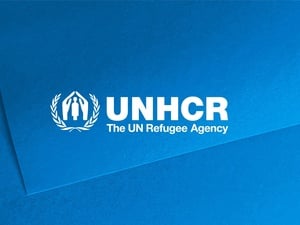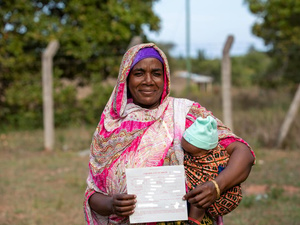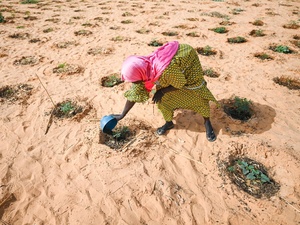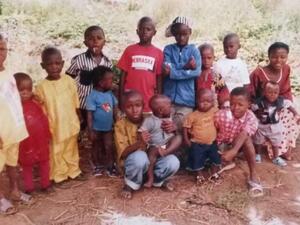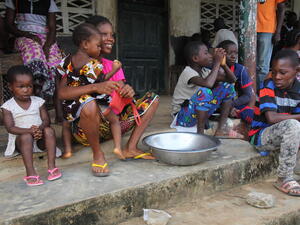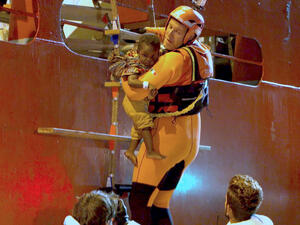Guinea: partial aid resumption, situation tense
Guinea: partial aid resumption, situation tense
Relief agencies have been able to resume work in some regions of southern Guinea after scaling down briefly earlier this week in the wake of fresh attacks. But the situation remains tense across the region, making it one of the most dangerous areas for humanitarians worldwide.
UNHCR and the Guinea Red Cross have begun food delivery to refugees in the area of Nyaedou, 15 km north of Guéckédou. We are distributing aid to long-time residents of the camp, as well as thousands of refugees who had fled from other camps following recent rebel attacks in the south. By Friday, more than 25,000 Sierra Leonean and Liberian refugees in Nyaedou will have received one month's ration (1,600 kilocalories per day) of corn flour, dried beans and vegetable oil per person. This is far below the U.N.'s recommended 2,100 kcal, but it is the maximum of food-aid currently available. As soon as possible, similar rations will also be distributed to some 35,000 refugees in Massakoundou camp, 10 km south-west of Kissidougou, as well as to 12,000 mainly Sierra Leonean refugees who fled to several sites along the road north of Kissidougou. UNHCR's partner MSF has established health posts in several camps and started a vaccination campaign against measles.
Refugees in Nyaedou camp told UNHCR staff on Thursday that they preferred to go back to Sierra Leone rather than remain in Guinea, where they must depend on the precarious aid pipeline. There are also reports of refugees crossing dangerous rebel-held areas to walk back to Sierra Leone directly from southern Guinea, after movement toward Conakry was blocked by security forces. The first priority for UNHCR is now to evacuate refugees from the so-called "parrot's beak" region, where close to 200,000 of them have been stranded for the past few weeks, and take them to safer sites.
UNHCR is also helping the Guinean health authorities to fight a yellow fever epidemic which has already claimed 220 lives among the local population in northern and eastern areas of Guinea. A total of 641 more persons are infected. A vaccination campaign has been planned in several prefectures and UNHCR has offered 4,000 litres of fuel, as well as two MSF-operated trucks to help with the vaccination campaign.


